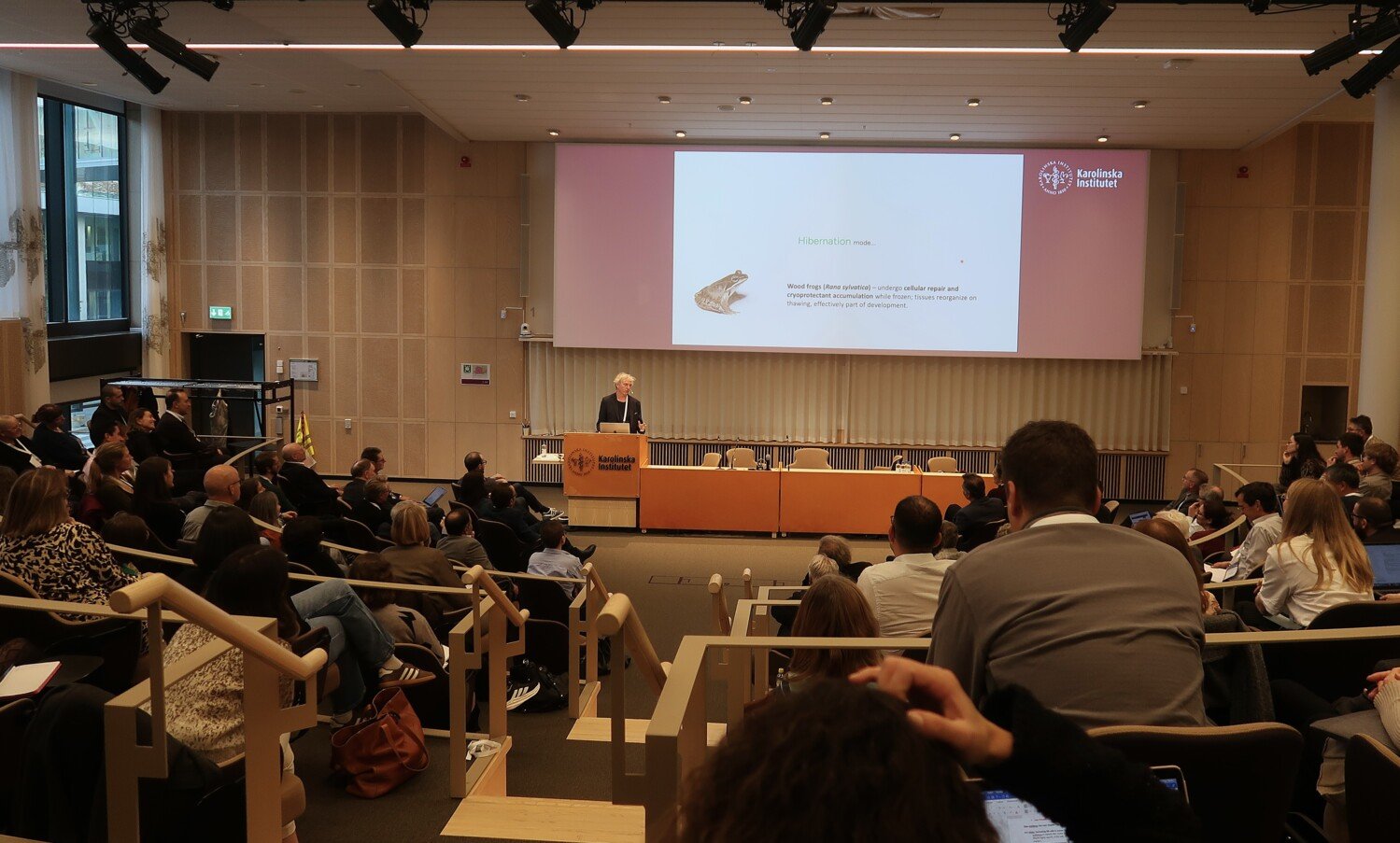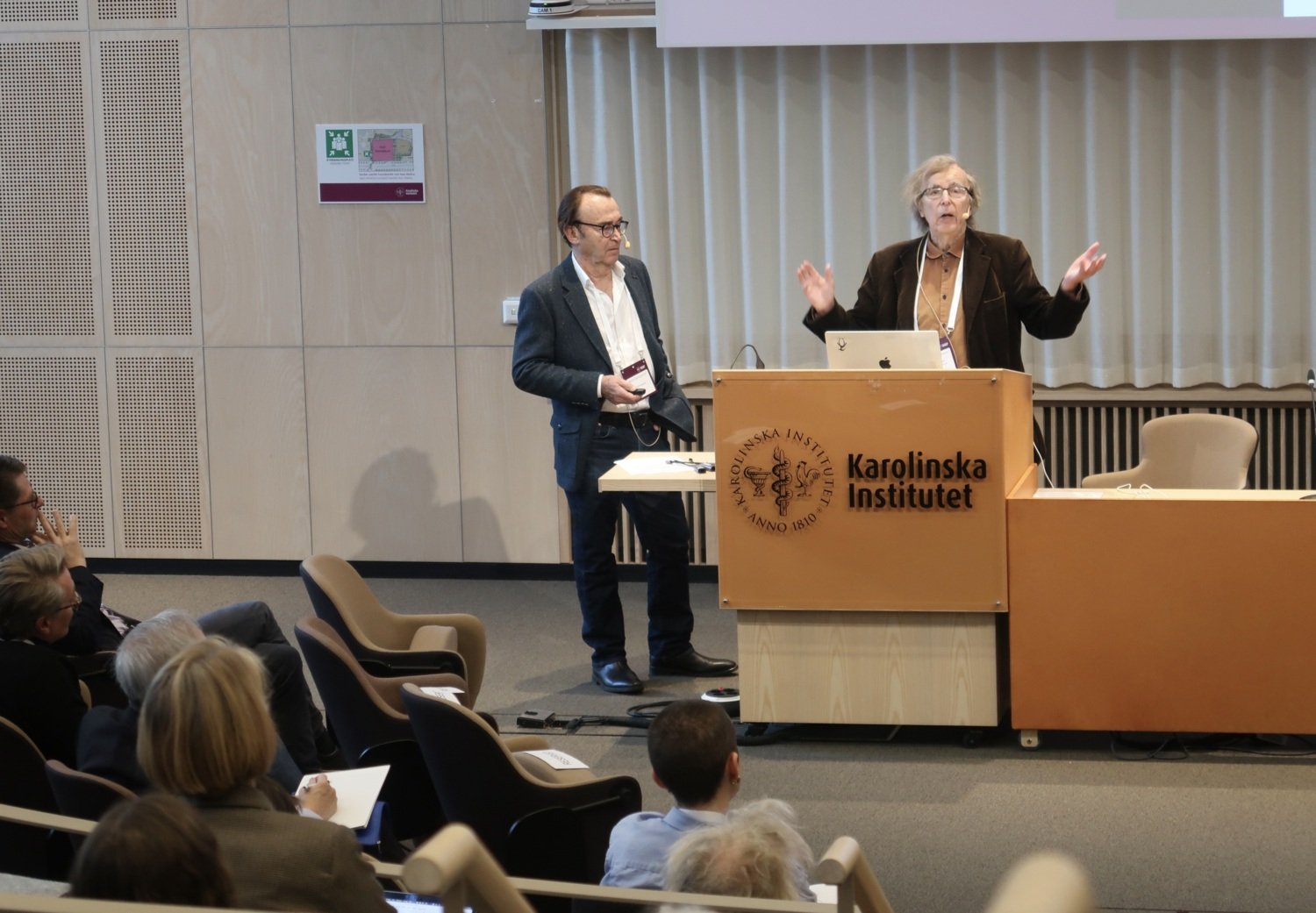50 years of NK cell research celebrated with a symposium

Nearly 240 participants gathered in the Eva & Georg Klein Hall at Karolinska Institutet on 14 October to mark the 50th anniversary of the discovery of natural killer (NK) cells. The full-day symposium featured presentations on scientific advances, offering both historical reflections and future outlooks.
The day started with an introduction by Andreas Lundqvist and Hans-Gustaf Ljunggren, representatives from the organising team. They welcomed the attendees and spoke about Eva Klein, a pioneer in immunology who, together with her colleagues, contributed to the groundbreaking discovery of NK cells at Karolinska Institutet in 1975.

Milestones in immunological research
This was followed by a presentation by Eva's colleague Hans Wigzell together with Rolf Kiessling, who was a doctoral student of Eva and Hans. They spoke about the research conducted prior to the discovery of NK cells and also offered insight into the path that led to the breakthrough which laid the foundation for an entirely new field of research.
Throughout the symposium, a number of leading researchers from Swedish and international universities gave presentations. Among them, Klas Kärre from KI spoke about the discovery of the missing-self hypothesis, and Wayne Yokoyama from Washington University presented his work on the identification of the first inhibitory receptors on NK cells.
From today’s research to tomorrow’s possibilities
Lewis Lanier from the University of California, San Francisco, summarised five decades of progress in NK cell research and encouraged the young students in the audience to continue writing the history of NK cells over the next 50 years.
The day also included several shorter presentations from KI researchers. Yenan Bryceson presented his research on NK cells in primary immunodeficiencies, Nicole Marquardt spoke about NK cells in the lung tumour microenvironment, and Aline Pfefferle shared her work on tumour-infiltrating NK cells in various cancer types.
The final presentation of the day offered a forward-looking perspective, as Karl-Johan Malmberg, affiliated with the University of Oslo and KI, spoke about his scientific role models and reflected on the future of clinical research, sharing a hopeful message about continued innovation.
The symposium concluded with a reception for all participants and speakers, providing an opportunity to mingle and discuss the day.
